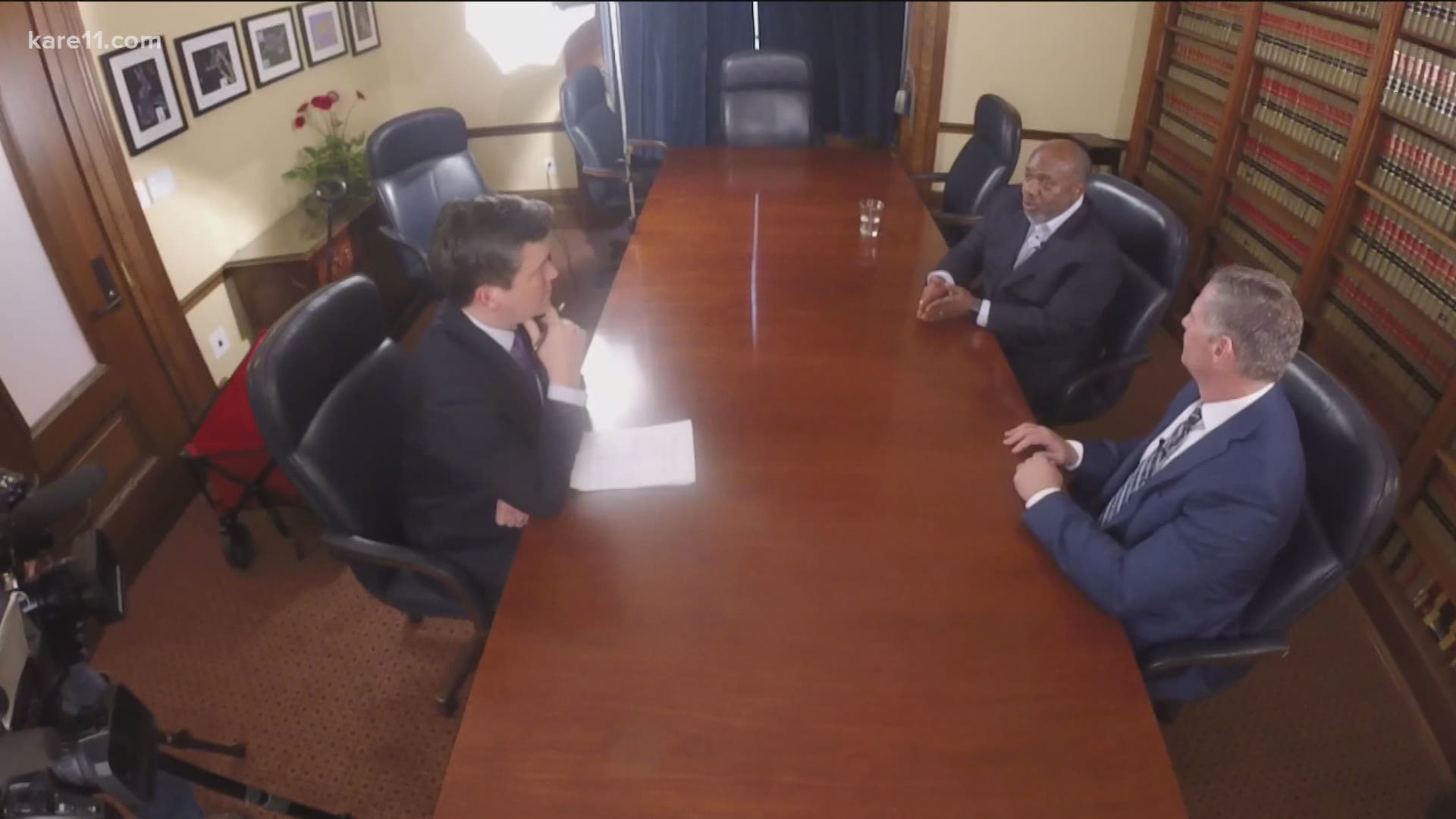SAINT LOUIS, Mo. — The guilty verdicts in the George Floyd murder case felt like a watershed moment to many Americans. President Biden called the verdicts a “giant step toward justice.” But pervasive legal roadblocks to police accountability remain entrenched.
Most police officers who violate citizens’ rights get away with it because the law is heavily stacked in their favor, legal experts say. None of those legal roadblocks was removed by the guilty verdicts against Derek Chauvin.
In Chauvin trial, Minnesota required the jury to apply the same tough “objective reasonableness” standard that makes it hard to convict officers across the nation. That standard requires a jury to see the police action “from the perspective of a reasonable officer on the scene.” They can’t second-guess a decision made in the heat of the moment.
One thing states and cities can do is “raise this bar for the use of force,” said David A. Harris, a law professor at the University of Pittsburgh. “What people forget is that the Supreme Court set a minimum standard for the protection of citizens from state action by police. While states can’t give citizens less protection, they can create more.”
___
This reporting was funded by the Pulitzer Center on Crisis Reporting.
___
Abusive police are seldom prosecuted and those prosecuted usually aren’t convicted. Police kill about 1,000 people each year, but few are punished.
Only 45 officers have been convicted since 2005 after being charged with murder or manslaughter in nonfederal cases involving killings on-duty - and many of the convictions were on reduced charges.
Federal prosecutions and convictions for violating a citizen’s civil rights also are rare. Between 1990 and 2019, federal prosecutors filed criminal civil rights charges against an average of 41 officers a year - even though they got referrals 10 times greater.
The Trump administration refused to use one of its most potent legal weapons, pattern-or-practice suits, to force departments, such as Ferguson, Mo., to abandon unconstitutional policing.
Attorney General Merrick Garland reversed the Trump policy last week and announced a pattern-or-practice investigation in Minneapolis.
The Pulitzer Center on Crisis Reporting studied the roadblocks to police accountability. Among the findings:
— Most states - 29 - keep records of police misconduct secret or difficult to access, although the number of states opening records has increased recently with New York, California, Massachusetts and Illinois opening up.
— A national database that keeps track of 30,188 officers who have lost their badges doesn’t release the information to the public.
— In Illinois, 81 Chicago police officers lost their badges in the past two decades, but only after they were investigated for 1,706 prior complaints - 21 per officer.
— In New York, the repeal of a law blocking access to past complaints opened records to a whopping 323,911 complaints over the past 35 years.
— In Philadelphia, two-thirds of the 170 officers the police department wanted to fire in recent decades stayed on the force through union arbitration.
— In St. Louis, the police unions are effectively segregated and white officers have gotten away with assaulting black colleagues.
— In Portland, a federal court found that federal agents targeted journalists in a “shocking pattern of misconduct.”
— In California, 630 people who had been officers since 2008 had been previously convicted of a crime.
When New York repealed statute 50a last year and opened misconduct records to the public, the database included 323,911 records. About 20,000 New York officers had five or more substantiated cases, but only 12 had been forced out of the department.
Harris, the law professor, says one big impetus toward police reform is the election of so-called “progressive prosecutors” around the country. Some of these progressive prosecutors have ended up in pitch battles with police unions.
Unions are provoked by so-called Brady lists of officers whose prior conduct and untruthfulness in investigations prevent them from testifying. St. Louis has a list of 55-plus. Philadelphia has reported 215. Baltimore’s list is about 300.
A number of states have passed major reform bills in the past year.
Maryland repealed a police bill of rights. Illinois passed a law ending cash bail and increasing accountability for repeat police offenders. Massachusetts passed a police decertification law and opened police misconduct records. Five states restricted the no-knock warrants. Sixteen states have limited choke-holds. New York City and four states recently passed laws ending qualified immunity, which lets most officers off the hook. Washington passed a law requiring a state agency to create a publicly searchable database of all police misconduct.
Harris puts it this way: “There has been change since Ferguson but some of the fundamentals remain stuck.”
___
Pulitzer student reporting fellows Kallie Cox, Sojourner Ahebee, Felicia Hou and Karen Kurosawa contributed to the reporting. Cox, from Southern Illinois University reported on Illinois. Ahebee, Hou and Kurosawa, from Stanford University, reported on Philadelphia, New York and California.

